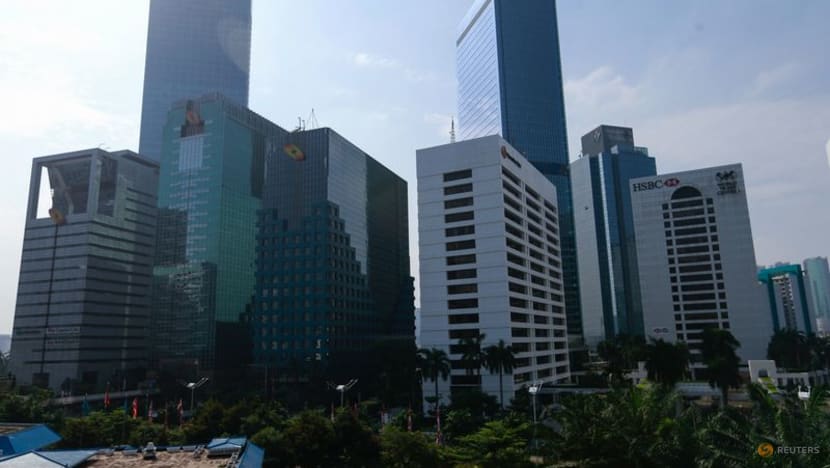Indonesia's Q3 GDP rises 4.95% from a year ago, slightly slower than Q2

A general view of the skyline of Jakarta, the capital city of Indonesia, on Aug 5, 2021. (Photo: REUTERS/Ajeng Dinar Ulfiana)
JAKARTA: Indonesia's gross domestic product in the third quarter increased 4.95 per cent from a year earlier, its slowest pace in a year, data from the statistics bureau showed on Tuesday (Nov 5), as household consumption showed softer growth.
The third-quarter result came slightly below annual growth of 5 per cent expected by analysts polled by Reuters and compared with an increase of 5.05 per cent in the second quarter.
On a quarterly, non-seasonally adjusted basis, GDP grew 1.50 per cent, compared with a forecast of 1.59 per cent.
Household consumption, which makes up about half of Indonesia's GDP, grew 4.91 per cent annually in the third quarter, off the previous quarter's growth of 4.93 per cent, amid slower spending for goods such as clothing and housing, Amalia Widyasanti, the acting head of Statistics Indonesia, told reporters.
Investment grew 5.15 per cent year-on-year, its fastest pace in a year, supported by investment in the new capital city and other infrastructure projects, she added. Government spending and exports also expanded more.
"Third-quarter growth numbers met our expectations as investment growth and pick-up in exports compensated for soft household consumption," said DBS Bank economist Radhika Rao.
Full-year GDP growth is expected at around 5 per cent, said Airlangga Hartarto, the chief economic minister.
"We will continue to support household consumption and also investment," Airlangga told reporters. "We hoped we could maintain the economic growth until year-end."
Existing government incentives, such as a tax break on certain property sales, are expected to support consumption, he said, adding that the government was also formulating a policy to help labour-intensive industries avoid layoffs.
In September, Bank Indonesia cut rates to support the economy, and then held steady in October as rising tension in the Middle East renewed pressure on the rupiah.
The third-quarter GDP reading backs DBS Bank's forecast for a further rate cut by the central bank this quarter, assuming rupiah stability, Rao added.
The rupiah closed 0.13 per cent stronger on Tuesday, rebounding off its weakest level since August, hit earlier in the day.













